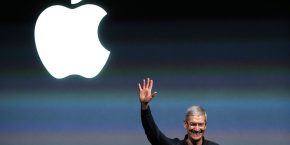
Yesterday’s Apple RCS u-turn came as a big surprise, as the company had previously indicated that it had no plans to support the rich communication services (RCS) messaging standard.
But while the announcement itself was a surprise, the timing of it was not a coincidence – and represents a rare example of Apple (sort of) getting ahead of antitrust legislation …
Apple’s previous refusal to adopt RCS
The first form of text-based messaging between phones was, of course, SMS – the short message service, commonly referred to simply as text messaging.
SMS has a lot of limitations, including a maximum length of 160 characters (or 70 characters for languages requiring unicode characters), no ability to send media, lack of encryption, and so on.
To solve these problems, a new standard was developed way back in 2007, known as rich communication services, or RCS. The idea was that this would completely replace SMS. If all had gone to plan, SMS would by now simply be a dim and distant memory.
That didn’t happen – and one of the reasons was because Apple refused to support the new standard. That meant that if an Android user wanted to send a message to an iPhone user without using a third-party app like WhatsApp, they could only use SMS, so SMS had to stick around.
While Apple CEO Tim Cook claimed that he didn’t see much demand for RCS support, the real reason was Apple knew that iMessage sells iPhones.
EU law on messaging interoperability
Apple’s hand looked set to be forced by the Digital Markets Act, one element of which was a requirement for messaging interoperability. The law says it should be possible of a user of one messaging app (like iMessage) to be able to communicate with someone using a different messaging app (like WhatsApp).
The reason for this is to solve the catch-22 situation facing any messaging app startup. You could create the best messaging app in the world, but nobody will use it unless their family and friends already do so. With messaging interoperability, anyone could use the messaging app of their choice, and still be able to communicate with all their contacts.
A deadline of 16th November would have applied
If iMessage had been covered by this new law, Apple would have had until yesterday to appeal the decision.
As it happens, Apple had earlier argued that it shouldn’t be subject to the law because it doesn’t have enough users in Europe. This seems questionable, but the claim bought the company time, because the EU agreed not to include iMessage until the number of active users had been determined.
But my guess is that Apple hadn’t expected to win that one, so was ready to announce on that date that it was going to support RCS – and has now stuck to that decision anyway.
Apple’s announcement is insurance
By deciding to support RCS, Apple has effectively bought an insurance policy. Even if iMessage is found to be big enough to be covered by the messaging interoperability requirement, it can now turn round and say “We’re doing just that – through RCS.”
(Apple had previously argued that SMS already provides interoperability, but that was never going to fly in an era in which emoji are so well established that you can use them to enter into a legal contract!)
The RCS argument isn’t guaranteed to work, but it’s a pretty safe bet. The standard lets people do all the things expected of a modern messaging service. It does fall down in one area – it doesn’t support end-to-end encryption – but governments aren’t exactly fans of that anyway.
Apple is (kind of) getting ahead of antitrust law
Apple has a habit of holding back on antitrust issues until it is forced to act by either the law, or the weight of public opinion.
Top comment by Inkling
iMessage still has one major advantage over RCS—end-to-end encryption. For many users that matters. Apple could promote that difference in its marketing.
While it could be argued that the same is true in this case, Apple has technically gotten at least a little ahead of the game this time. Right now, iMessage hasn’t been ruled to have enough active users to be subject to messaging interoperability requirements, so there’s a chance that it would never be required to comply. But the company has decided to do so anyway.
The reason? That insurance is cheap
I said this was insurance on Apple’s part against something which may or may not happen. But as we argued yesterday, it’s cheap insurance. There is very little downside for the company.
That’s because very little changes. Apple has confirmed that RCS messages will, like text messages, be green. So if someone is buying an iPhone to be part of the blue bubble club, then they will still do so after this change.
Photo: Alexander Shatov/Unsplash
FTC: We use income earning auto affiliate links. More.




Comments